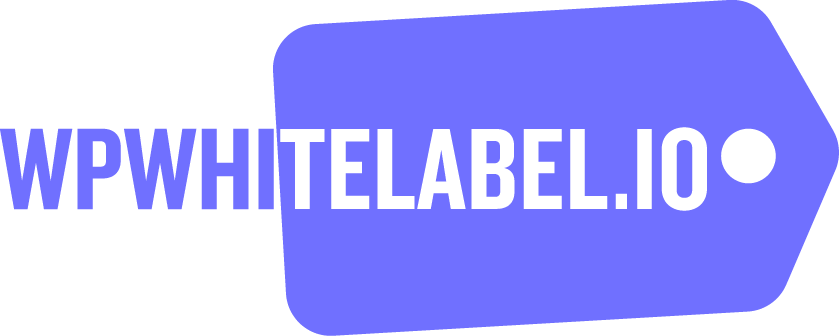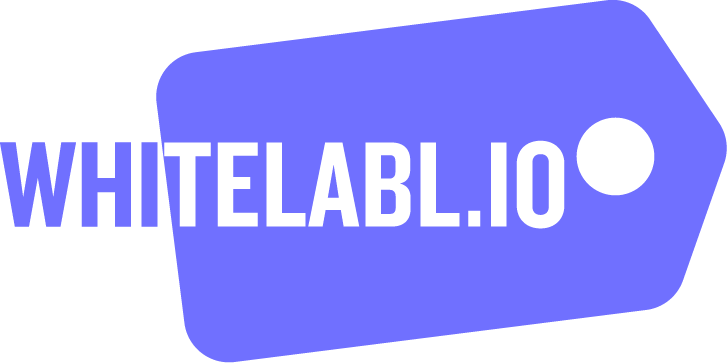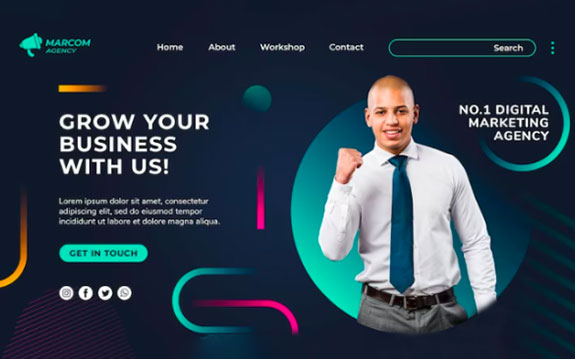These days, digital marketing agencies are constantly looking for effective strategies to improve their service offerings, streamline operations, and maximize profitability. Three popular approaches that frequently arise in discussions about web development and marketing services are white label, private label, and outsourcing. While these strategies may appear similar at first glance, each has unique characteristics, advantages, and challenges. So, in this white label vs private label vs outsourcing blog post, let’s delve deeper into these approaches to determine which model aligns best with your agency’s goals.
What is White Labeling in WordPress?
White labeling in the WordPress context refers to a business model where WordPress services or products are developed by one company but rebranded and offered by another company under its own name. In this arrangement, the original developer remains anonymous, while the agency or reseller presents the WordPress solutions as their own.
This approach is prevalent in the digital marketing industry. It allows agencies to provide website design, development, and maintenance services without revealing the underlying source. This enables agencies to enhance their service offerings while maintaining brand consistency and ownership in the eyes of their clients.
For instance, we provide white-label WordPress services that enable digital marketing agencies to present these offerings under their own brand. As a result, these agencies’ clients see only the agency’s branding, remaining unaware of the original creator behind the services. Contact us.
White Label WordPress Services Advantages and Disadvantages
| White Label Advantages | White Label Disadvantages |
| Digital marketing agencies can swiftly offer WordPress services without the need for extensive development or customization. This allows them to capitalize on opportunities in the market rapidly. | Agencies depend on the quality and consistency of the services provided by the original developer. Any issues with the underlying service can reflect poorly on the agency’s reputation, leading to potential customer dissatisfaction. |
| With pre-developed WordPress solutions, agencies face low initial investment costs. They can provide these services to their clients without incurring the high expenses typically associated with developing a website from scratch. | |
| Agencies can present a broad range of WordPress services—such as design, maintenance, and SEO—without significant commitment. This flexibility allows them to cater to various client needs and expand their service portfolios. |
Read about: Complete List of Web Services to Outsource to White-Label Providers
What is Private Labeling in WordPress?
Private labeling is similar to white labeling but involves key distinctions. In this model, a digital marketing agency collaborates closely with a developer or service provider to create WordPress solutions that are exclusively theirs. This partnership allows the agency greater control over product specifications, features, design, and branding, resulting in a unique offering that reflects the agency’s identity.
For example, an agency may work with a developer to create a custom WordPress theme or plugin that is available only to their clients. These solutions carry the agency’s branding and often cater to specific niches or market segments.
Private Label WordPress Services Advantages and Disadvantages
| Private Label Advantages | Private Label Disadvantages |
| Agencies can establish a unique identity for their WordPress services, fostering stronger brand loyalty among clients. | The initial investment can be significant, as agencies may incur costs related to product development, design, and testing. |
| By offering exclusive WordPress solutions, agencies can often command higher prices, leading to increased profitability. | Creating customized WordPress solutions may take more time compared to simply rebranding existing services, which can delay the launch of new offerings. |
| Agencies have the flexibility to tailor their WordPress offerings to meet specific client needs, allowing them to stand out in a crowded marketplace. |
Know about: Reasons Why Digital Marketing Agencies Require White Label Services for Growth
What is Outsourcing in WordPress?
WordPress Outsourcing involves hiring third-party service providers to handle specific tasks or deliver services that the agency or company does not manage in-house. This strategy allows digital marketing agencies to focus on their core competencies—such as strategy, client relationships, and brand development—while leveraging the expertise of external providers for tasks like website conversion, maintenance, and support.
For example, a digital marketing agency may outsource the creation of Figma to WordPress websites to a specialized development firm. This enables the agency to concentrate on client acquisition and marketing strategies without getting bogged down by the technical complexities of web development.
Outsourcing WordPress Services Advantages and Disadvantages
| Outsourcing Advantages | Outsourcing Disadvantages |
| Agencies can dedicate their resources and attention to their primary strengths, such as client relations and strategy, while outsourcing technical tasks to experts. | Agencies may experience a reduction in control over outsourced functions. |
| Outsourcing can lead to significant reductions in operational costs, allowing agencies to manage budgets while still delivering quality services. | Collaborating with external providers can sometimes lead to misunderstandings or delays. |
| By collaborating with external providers, agencies can tap into specialized skills and knowledge that may not be available in-house, ensuring high-quality service delivery. |
White Label vs Traditional Agencies: Outsourcing WordPress Development Services
Key Differences: White Label vs Private Label vs Outsourcing in WordPress
While all three strategies aim to enhance efficiency and profitability in the WordPress ecosystem, they differ significantly in terms of control, branding, and market positioning. Here’s a breakdown of the key differences:
Control Over Product Development
White Labeling: Agencies have minimal control over the WordPress solutions they offer. They can select from existing themes or plugins but cannot make substantial modifications.
Private Labeling: Agencies have considerable control over the development of their WordPress products. They can influence the design, functionality, and branding of the services, allowing them to create unique offerings that cater specifically to their target audience.
Outsourcing: The level of control varies based on the relationship with the outsourced provider. Agencies can specify certain aspects of the development process but may need to rely on the provider’s expertise for implementation. This can lead to varying degrees of quality and consistency.
Guide to: How to Price Your WordPress Development Services
Branding and Identity
White Labeling: In this model, the agency’s brand is placed on all WordPress solutions created by their white label partner. The focus is primarily on the agency’s name rather than the origin of the product.
Private Labeling: The agency’s branding is central to the identity of the WordPress solutions they provide. This unique branding reflects the agency’s values and can be tailored to resonate with a specific market segment.
Outsourcing: Branding is generally not a focus of outsourcing. The role of the external provider is to execute specific tasks, with little contribution to the agency’s overall brand identity.
Read: How a White Label Agency Supports Digital Agencies with Client Management
Market Positioning
White Labeling: Often seen as a cost-effective solution, white label WordPress services appeal to budget-conscious agencies looking to expand their offerings without significant investment. This approach allows agencies to provide a wide array of services quickly.
Private Labeling: Agencies focused on private labeling aim to create a unique selling proposition with their WordPress offerings. This strategy often targets niche markets and works to build customer loyalty through distinct branding and specialized services.
Outsourcing: The primary goal of outsourcing in the WordPress space is to improve operational efficiency and reduce costs. Agencies may choose to outsource development to access specialized skills and capabilities that they lack in-house.
Know more: Outsourcing WordPress Support Benefits and Challenges
Profit Margins
White Labeling: White labeling offers higher profit margins by using existing WordPress products, allowing agencies to provide cost-effective services and attract a wider client base.
Private Labeling: Private labeling also leads to substantial profits since agencies can set prices based on perceived value. Unique WordPress solutions can command premium prices, increasing profitability.
Outsourcing: Profit margins in outsourcing depend largely on the effectiveness of the arrangement with the third-party provider. Efficient outsourcing can lower costs, potentially improving the agency’s overall profitability if managed well.
Debunking Myths: White-Label WordPress Services for Digital Agencies
White Label vs Private Label vs Outsourcing: Choosing the Right Strategy
Choosing the right strategy for WordPress services depends on an agency’s goals, resources, and market positioning. Here are some important factors to consider:
Target Market
Understanding your audience is crucial. Private labeling might be the best approach if your clients are looking for unique, high-quality WordPress solutions tailored to their specific needs. On the other hand, if your clients prioritize affordability and speed, white labeling could be a more suitable option, allowing you to offer a range of services without extensive customization quickly.
Resources
Evaluate your budget and capabilities. If your agency has limited resources for product development or lacks the technical skills needed to create custom solutions, white label WordPress services provide a fast and cost-effective solution. It allows you to offer services without the overhead of development costs.
Brand Identity
Consider how you want to position your brand in the market. If establishing a distinct identity is essential for your agency, private labeling can help you achieve that. By creating unique WordPress themes or plugins that reflect your brand’s values, you can build a loyal client base that resonates with your offerings.
Operational Efficiency
Outsourcing may be the best strategy if your primary goal is to streamline operations and enhance efficiency. By outsourcing WordPress development and maintenance tasks to specialized providers, you can focus on your core competencies while benefiting from the expertise of external developers. This can improve service delivery and allow your agency to scale more effectively.
Further reading: White Label Services vs Outsourcing vs Reselling
Summary
In summary, white labeling, private labeling, and outsourcing are valuable strategies for digital marketing agencies looking to enhance their service offerings and improve operational efficiency.
White labeling provides a quick and cost-effective way for agencies to enter the market with ready-made WordPress solutions, while private labeling allows for greater brand control and differentiation through customized offerings. On the other hand, outsourcing can lead to significant operational efficiencies, but it requires careful management to ensure quality and effective communication.
Digital marketing agencies can make informed decisions that align with their business objectives by understanding the key differences among these strategies and considering their unique circumstances. Whether choosing white label, private label, or outsourcing, each strategy presents its own opportunities and challenges that warrant thoughtful consideration.
FAQs About White Label vs Private Label vs Outsourcing
What is the primary difference between white labeling and private labeling in WordPress?
White labeling involves using existing WordPress solutions that are rebranded and sold by agencies without significant modifications. In contrast, private labeling allows agencies to develop custom WordPress products with unique features and branding, giving them greater control over the final offering.
How can I determine which strategy is best for my WordPress agency?
Choosing the right strategy depends on your agency’s goals, target market, and resources. White labeling might be suitable if you seek quick entry into the market with lower investment. If you aim to create a unique brand identity and have the resources for custom development, consider private labeling. If operational efficiency is your priority, outsourcing may be the best option.
Are there any cost differences between these strategies?
Yes, white labeling is generally more cost-effective since it involves minimal investment and leverages existing products. Private labeling often requires higher upfront costs for product development and customization. Outsourcing costs can vary based on the service provider and the scope of work, but if managed effectively, it can lead to savings in operational expenses.
Can I use a combination of these strategies in my WordPress business?
Absolutely! Many agencies use a combination of these strategies to optimize their offerings. For example, an agency might use white labeling for basic services while developing unique, private-labeled solutions for niche markets. They could also outsource specific tasks, such as development or maintenance, to enhance operational efficiency.



